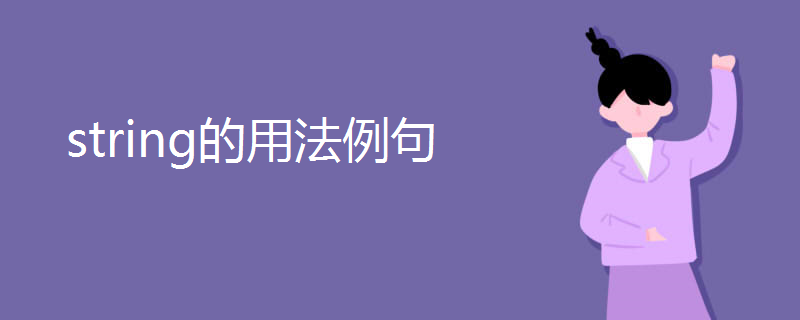-
-
string用作名词的基本含义是线,弦;用作动词时,既可用作及物动词也可用作不及物动词,表示串起,悬挂,使兴奋,连成一串等含义。

1.string作名词时意思是“琴弦”,转化为动词的意思是“装弦于”“上弦”。引申可表示“连成一串”“排成一行”“缚”“捆”等。
2.string既可用作及物动词,也可用作不及物动词。
(1)用作及物动词时,接名词、代词作宾语;
She can string a violin.
她会给小提琴上弦。
They strung these pearls too tightly.
他们把这些珍珠串得太紧了。
(2)用作不及物动词时与along连用,意思是“欺骗”。
3.string sth on sth (把…)挂在…上; 串
Lights had been strung on the trees of the big gardens.
大花园的树上都挂上了灯。
The beads were strung on very fine nylon.
珠子被串在十分细的尼龙丝上。
4.string out 排列成行,拖延时间
The parade strung out for miles.
游行队伍长达几英里。
The promise 3 days strung out to 6 weeks.
原先答应三天,结果延长到六个星期之久。
5.string up 悬挂起; 绞死; 紧张
They strung up coloured lights round the room.
他们在房间四周挂起了彩灯。
What he said at the meeting strung her nerves up.
他在会议上的发言使她的神经很紧张。